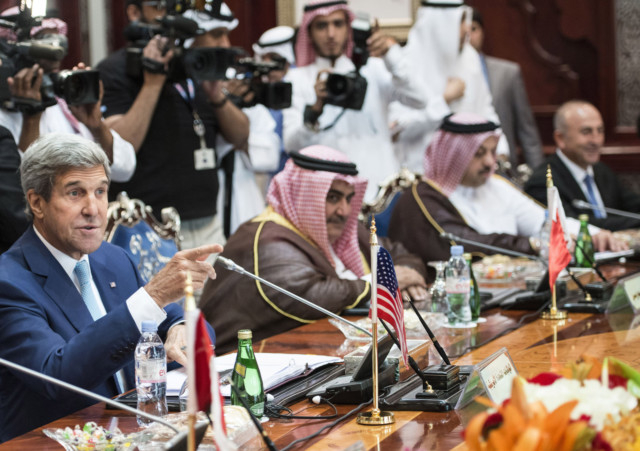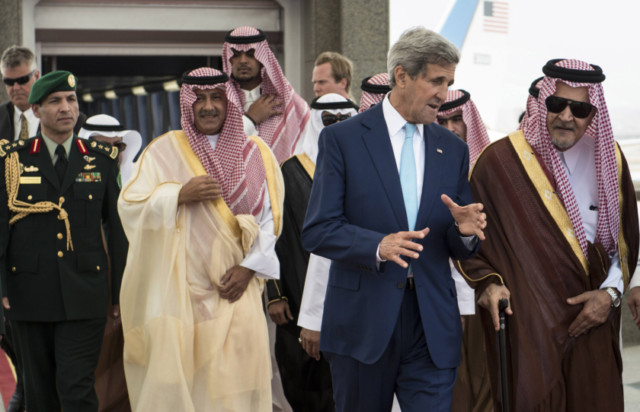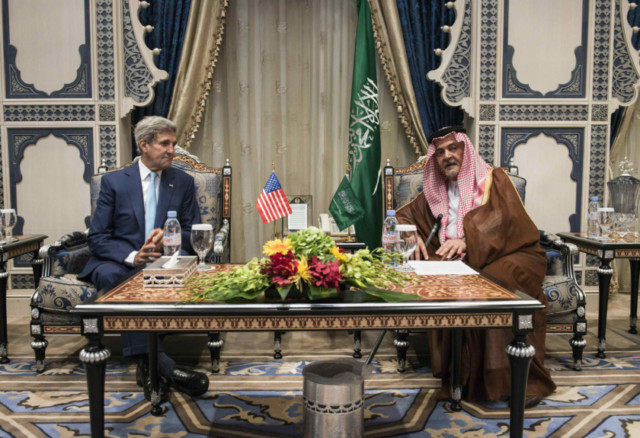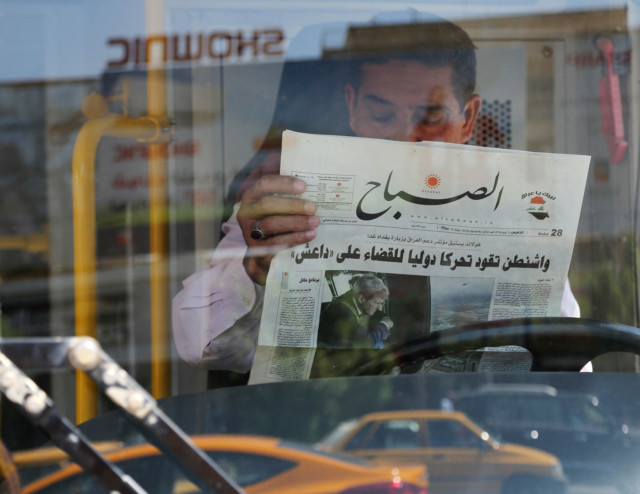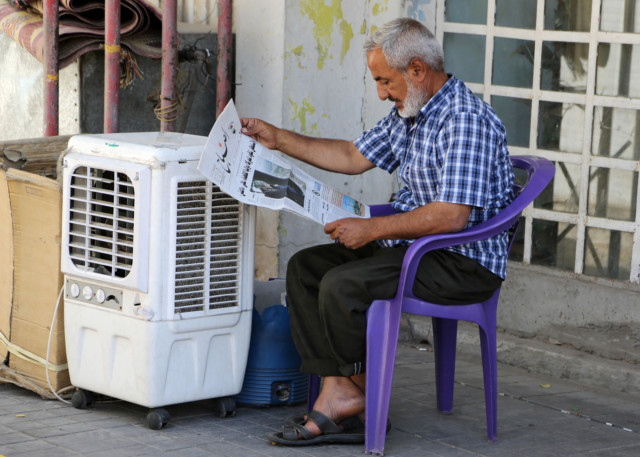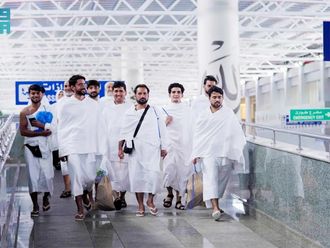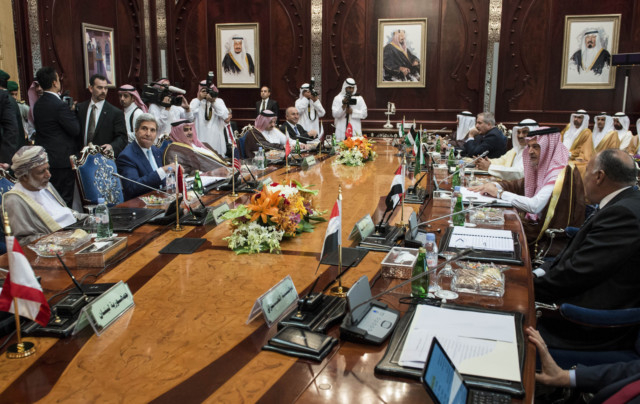
Jeddah: US Secretary of State John Kerry pressed Arab leaders on Thursday to back President Barack Obama’s new military drive against the Islamic State of Iraq and the Levant (Isil), calling for tighter curbs on funding for militants and fewer extremist messages in Arab media.
Meeting Arab leaders in the Saudi city of Jeddah a day after Obama announced his plans to strike fighters in Iraq and Syria, Kerry also sought permission to make more use of bases in the region and fly more warplanes overhead.
In a hopeful sign of reaching across the sectarian divide that has spread war across the Middle East and fed Isil’s militancy, Saudi Arabia said it might open an embassy in Iraq after decades of mutual suspicion.
The Saudis, who support other Sunni armed movements in Syria but consider Isil a terrorist group, have also promised to help Obama’s campaign by providing training camps for moderate Syrian Sunni fighters.
Obama declared on Wednesday that he would lead an alliance to root out Isil in both Syria and Iraq, plunging the United States into two conflicts in which nearly every country in the Middle East has a stake.
An alliance against Isil is bound to require cooperation from countries that consider each other bitter enemies. Washington itself supports the government in Iraq but opposes Al Assad in Syria; it is allied to Gulf Arab states and hostile to Iran.
The meeting in Jeddah was attended by Arab countries and non-Arab power Turkey, which have stood together against Syria’s Al Assad.
A State Department official travelling with Kerry said the top US diplomat would the ask allies to accept a bigger US
military presence in their airspace and regional bases: “We may need enhanced basing and overflights ... there’s going to be a meeting soon of defence ministers to work on these details.” Kerry would also urge regional television news outlets, particularly Qatari-owned Al Jazeera and Saudi-owned Al Arabiya, to air anti-extremist messages. Governments in the region would be urged to press mosques to preach against Isil.
“They need to get at the clerics because the clerics can get at the mosques in the neighbourhood and they have to expose Isil for what it is,” the official told reporters.
Washington also wants more efforts to stop the flow of money to the group by tackling oil smuggling and cracking down on contributions from private donors, the official said.
On Wednesday, before Obama’s prime time speech announcing his new campaign, Kerry visited Baghdad where he endorsed a new power-sharing government for Iraq, led by a Shiite, Haider Al Abadi, but also including Sunnis and Kurds.
Kerry said Abadi’s new government was “the heart and backbone” of the fight against Isil, and “a new and inclusive Iraqi government has to be the engine of our global strategy against ISIL.” Saudi Foreign Minister Prince Saud Al Faisal said the kingdom might reopen its embassy in Baghdad, closed since Iraq’s invasion of Kuwait in 1990. He added that the building needed to be renovated. His Iraqi counterpart Ebrahim Jaafari said the reopening of the embassy “would reflect well on relations”.


